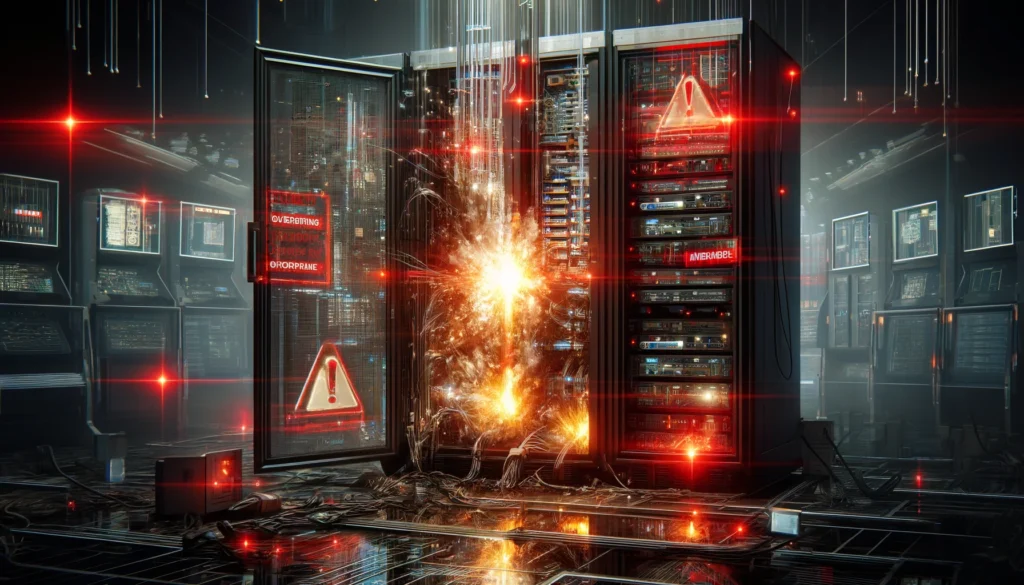- By quade
- 14 May 2024
What Are the Generative AI Effects on Content Management Systems
The evolution of technology is transforming the world of content management. One of the most promising developments is how AI systems are altering content management systems (CMSes). Many generative AI effects could change how we use CMS and can introduce a new wave of efficiency, personalization, and innovation by automating traditionally human-driven tasks.
Yet, organizations adopting GenAI within their content management workflows encounter significant challenges, including ethical dilemmas, and quality assurance. This raises the concern of balancing innovation with safety and security.
What is Generative AI?
Generative AI is a type of artificial intelligence that produces new content by learning from extensive datasets. It analyzes existing data and uses it as a foundation to generate original content, such as articles and images, resembling human-like outputs. This represents a significant advancement from traditional AI, which primarily focuses on data analysis.
Generative AI steps into a creative role, simulating human creativity and thought processes. Because of these developments, the generative AI effects can be far-reaching for many industries.
5 Generative AI Effects on CMS

Generative AI is artificial intelligence that is fed large amounts of data from across the internet to create content like pictures, texts, and videos. All of this content is meant to resemble human outputs. This represents a significant advancement from traditional AI, which focuses on data analysis.
5, Product Description Generation
One of the biggest Generative AI Effects is allowing CMSs to leverage GenAI to automatically craft compelling product descriptions, enhancing the visibility and appeal of each product. Creating product descriptions is an important, but tedious task that requires plenty of time for an employee. Allowing AI to handle it simplifies the workload but will allow users to control what is created.
4, SEO Enhancement
GenAI can analyze and optimize content to boost SEO efforts. This can be one of the most useful Generative AI effects as products are only seen in search engines if they have strong SEO rankings. SEO affects the entire article including keywords, titles, headers, and formatting. Here the AI can generate SEO-friendly meta tags. These enhancements help improve readability, tailor content for search engines, and boost organic traffic and visibility.
This means following the ever-changing algorithm. AI can learn this system and improve blog posts, articles, and news headlines.
3, Content Personalization Improvement
With GenAI, CMSs can analyze user data such as purchase history and browsing patterns to tailor content for each visitor. This personalization transforms each online interaction into a unique experience, featuring highly relevant promotions, recommendations, and ads. Such tailored digital experiences can enhance customer engagement, satisfaction, retention, and conversion rates.
4, Produces Extended Texts
To maintain audience interest, you can use another one of Generative AI effects which is to create, edit, and update your content. Generative AI automatically creates detailed texts like articles and blog posts. This automatic content generation ensures a website stays updated and informative, reducing the need for frequent manual updates.
5, Enhances Chatbot Capabilities
One area that’s already been using AI is chatbots, and incorporating generative AI into this system can help improve its quality and user engagement. These advanced chatbots facilitate real-time interactions, delivering information on demand, addressing inquiries, and providing a more personalized and immediate communication experience compared to conventional chatbots.
Negative Generative AI Effects

Despite the many positive generative AI effects, its adoption presents many ethical and quality issues that have given people pause. These effects can seriously affect the content created by AI if they are not monitored.
The biggest concern people have is regarding privacy. The basic idea of generative AI is that they need to be trained on existing data. A common issue is that this user data is often taken illegally and stolen. Some AI companies have taken steps to try and regulate these issues, but this is still an important consideration.
Although AI can generate content, it’s not inherently creative or understands an issue as well as people. This can affect the content quality that the AI generates. This is one of the important generative AI effects because it cannot always align with brand standards.
Another growing issue for AI is what’s called AI hallucinations. This is when an AI generates misleading, inaccurate, or completely false content. This happens if the AI is fed bad data and can damage a brand’s reputation.
How Generative AI Affects BPOs
Generative AI is reshaping the Business Process Outsourcing (BPO) industry by automating complex processes and enhancing efficiency. These different generative AI effects can streamline the work of offshore IT security services.
The AI introduces advanced capabilities like real-time decision-making and personalized customer interactions. All of this can improve the quality of services, allowing them to become reliable IT outsourcing providers.
As BPOs integrate generative AI, they witness significant improvements in speed, accuracy, and efficiency which is important for BPO IT cost reduction. However, this transition also requires careful navigation of challenges such as workforce adaptation and maintaining human oversight.
Here at geniusOS, we’ve long understood the benefits of AI in the CMS and pay close attention to the different services it can be used in. We continue to adopt AI into our growing list of services in order to provide you with the best experience when working with us. If you want to learn more about our services, you can message us here.



